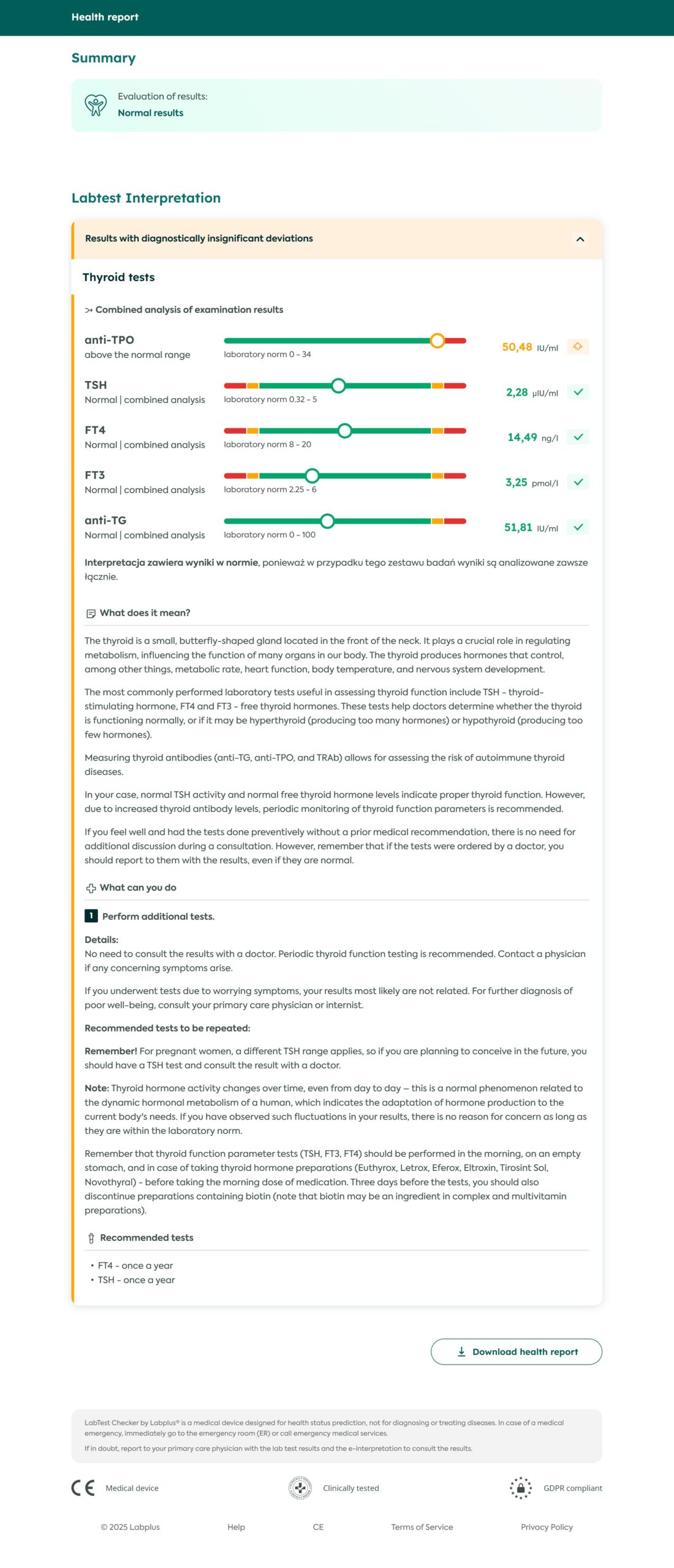Patient story
Nicole’s “concerning” thyroid results
Abnormal results aren’t always a reason to worry.

Context
27-year-old Nicole had always been health-conscious, regularly reading wellness blogs and staying informed about preventive care. When she came across an article about thyroid disorders in young women, she decided to be proactive and order a comprehensive thyroid panel.
When her results arrived, one value immediately caught her attention: elevated anti-TPO antibodies. Her heart sank. Everything else looked normal – TSH, FT3, and FT4 were all within range – but that one abnormal result sent her spiraling into worry.
Late that evening, Nicole found herself deep in internet rabbit holes, reading about autoimmune thyroid conditions and their potential complications. The more she read, the more anxious she became. Was this the beginning of a serious thyroid problem? Should she rush to see a specialist?
Before booking multiple appointments and expensive follow-up tests, Nicole decided to get a professional interpretation of her complete results.
See the interpretation of Nicole's results
Expert commentary
Many laboratory tests are closely interconnected. When interpreting one test result, we must consider the others.
The presence of anti-TPO antibodies with normal thyroid hormone activity (TSH, FT3, FT4) in healthy individuals has no significant diagnostic meaning and should not cause patient concern. Normal TSH and free hormone values indicate proper thyroid function, and an isolated increase in anti-TPO antibodies does not affect its functioning. Moreover, periodic monitoring of antibodies in this case has no medical justification.
However, it’s important to remember that different criteria for thyroid function balance apply to pregnant women, and in such cases, it’s worth consulting the results with an endocrinologist.
Physician, graduate of the Medical Faculty of Wrocław Medical University. She gained professional experience in primary care clinics and in the Department of Internal Medicine and Geriatrics at A. Falkiewicz Hospital in Wrocław.




